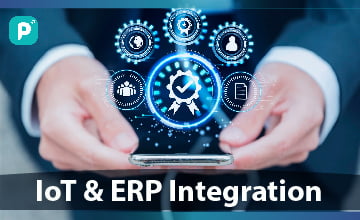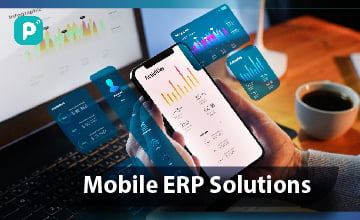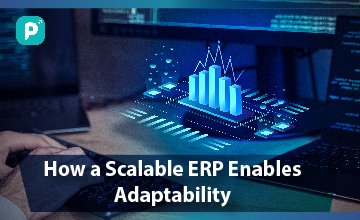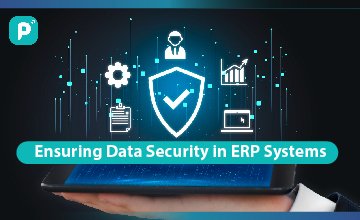By the year 2025, the global count of internet of things (IoT) devices is expected to reach around 38.6 billion. While a significant portion of these devices will be found in households, businesses across various industries also leverage IoT devices. However, companies that neglect to integrate their enterprise resource planning (ERP) systems with these IoT devices are overlooking valuable opportunities. In this article, we’ll delve into the advantages organizations can unlock through the integration of their ERP and IoT.
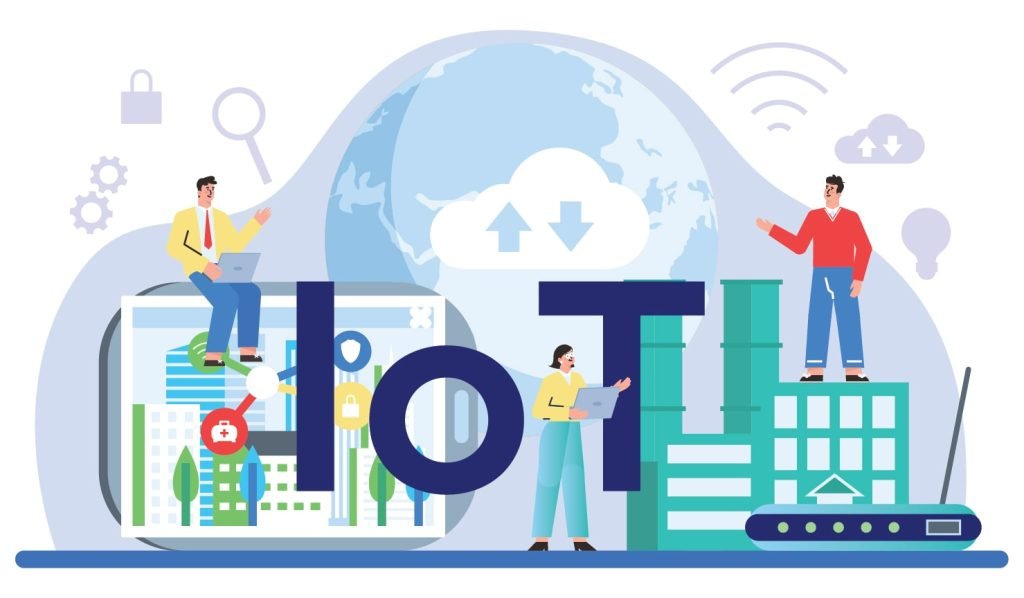
If you haven’t adopted an ERP system yet, utilize our ERP Product Selection Tool to identify the most suitable one for your business. By answering a few questions, you’ll receive a personalized list of recommended software solutions.
Benefits of ERP integration with IoT
The integration of ERP with IoT brings a host of benefits, including enhanced real-time data insights, improved automation and efficiency, optimal resource utilization, and strengthened decision-making processes. This collaboration between ERP and IoT not only streamlines operations but also positions businesses to thrive in the era of interconnected technologies.
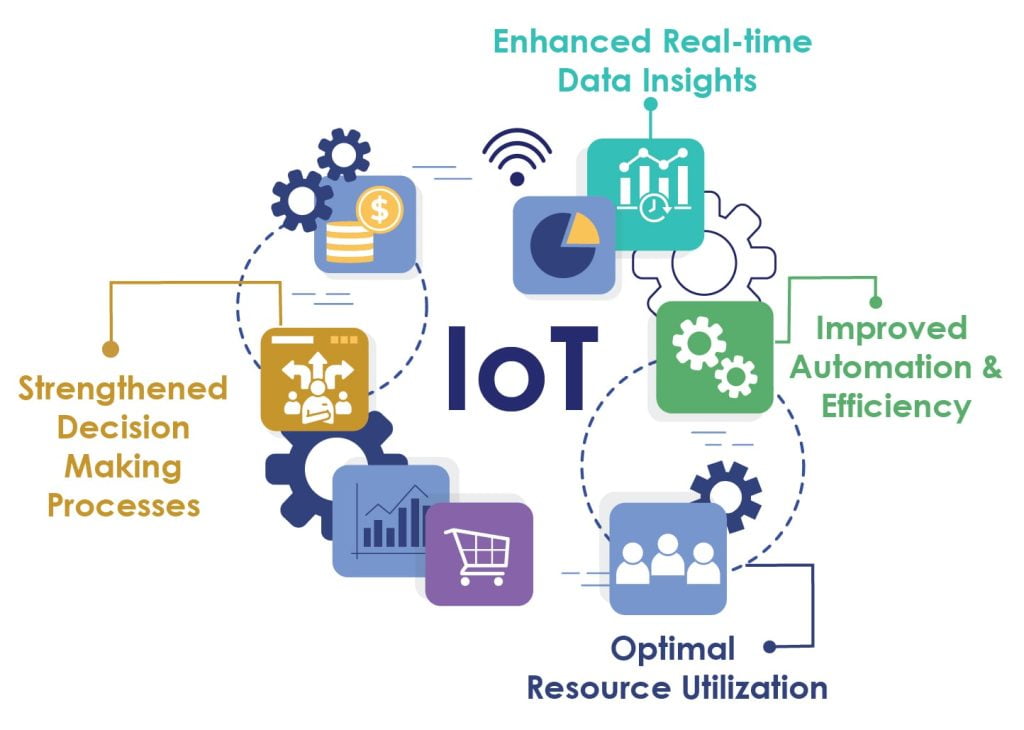
Enhanced Real-time Data Insights
The synergy between ERP and IoT brings about a significant enhancement in real-time data insights. By seamlessly integrating data from IoT devices into the ERP system, businesses gain immediate access to crucial information, enabling more informed and timely decision-making.
Improved Automation and Efficiency
Integration between ERP and IoT leads to improved automation of processes. IoT devices generate real-time data that, when integrated with ERP systems, automates various tasks and workflows. This not only reduces manual intervention but also enhances overall operational efficiency.
Optimal Resource Utilization
The integration of ERP with IoT allows for optimal utilization of resources. By leveraging real-time data from IoT devices, businesses can better track and manage resources such as inventory, machinery, and personnel. This optimization leads to cost savings and improved resource efficiency.
Strengthened Decision-Making Processes
The combination of ERP and IoT empowers organizations with comprehensive and accurate data, fostering strengthened decision-making processes. With real-time insights into various aspects of business operations, decision-makers can make informed choices, anticipate trends, and proactively address challenges.
Challenges of ERP integration with IoT
Successfully navigating these challenges necessitates a strategic approach, meticulous planning, and collaboration between IT and operational teams. Addressing security concerns, ensuring compatibility, and managing implementation challenges are crucial for unlocking the full potential of ERP and IoT integration. Businesses must carefully weigh the benefits against the challenges to make informed decisions and realize the transformative advantages of this innovative synergy.
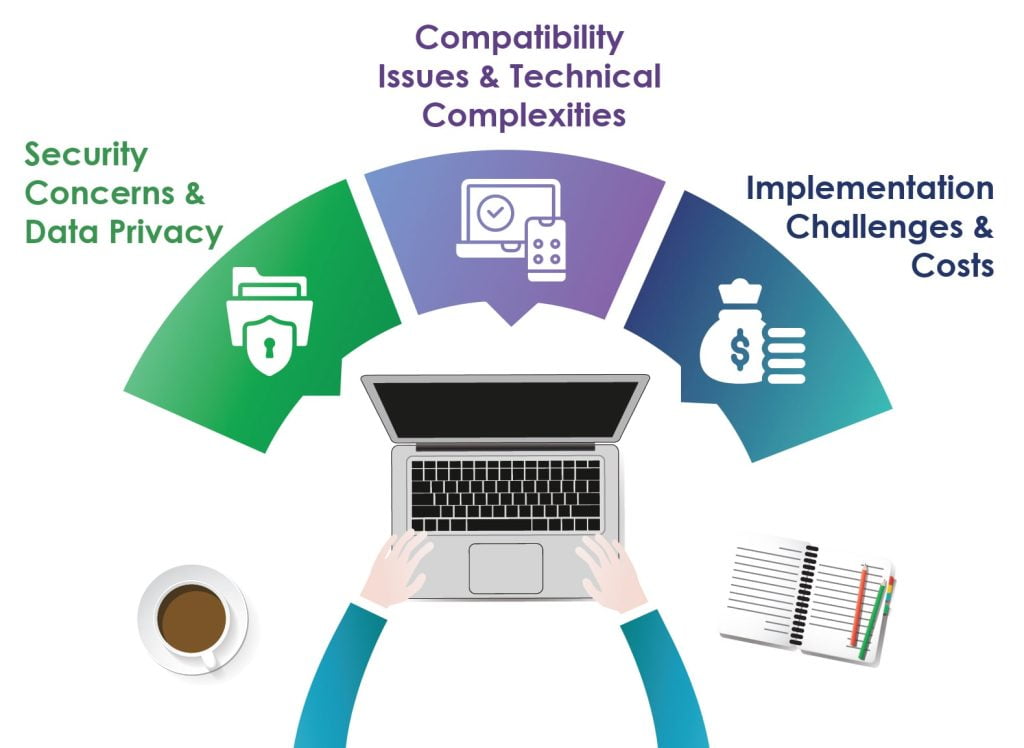
Security Concerns and Data Privacy
One of the primary challenges in integrating ERP with IoT is the heightened concern for security and data privacy. IoT devices often handle sensitive information, and their integration with ERP systems requires robust security measures to safeguard against potential cyber threats and unauthorized access.
Compatibility Issues and Technical Complexities
Integrating ERP systems with IoT devices can encounter compatibility issues and technical complexities. The diverse range of IoT devices may operate on different protocols and standards, making seamless integration challenging. Additionally, the technical intricacies involved in harmonizing disparate systems can pose hurdles.
Implementation Challenges and Costs
The implementation phase of ERP and IoT integration is fraught with challenges. Businesses may face resistance from existing workflows, require substantial employee training, and experience disruptions during the transition. Moreover, the associated costs, including investment in new technologies and potential downtime during implementation, can be significant considerations for organizations.
Future Trends
As we move forward, the synergy between ERP and IoT will continue to evolve, driven by technological advancements and industry-specific requirements. Businesses should stay abreast of these trends to harness the full potential of ERP and IoT integration, preparing for a future where innovative solutions redefine the landscape of enterprise operations.
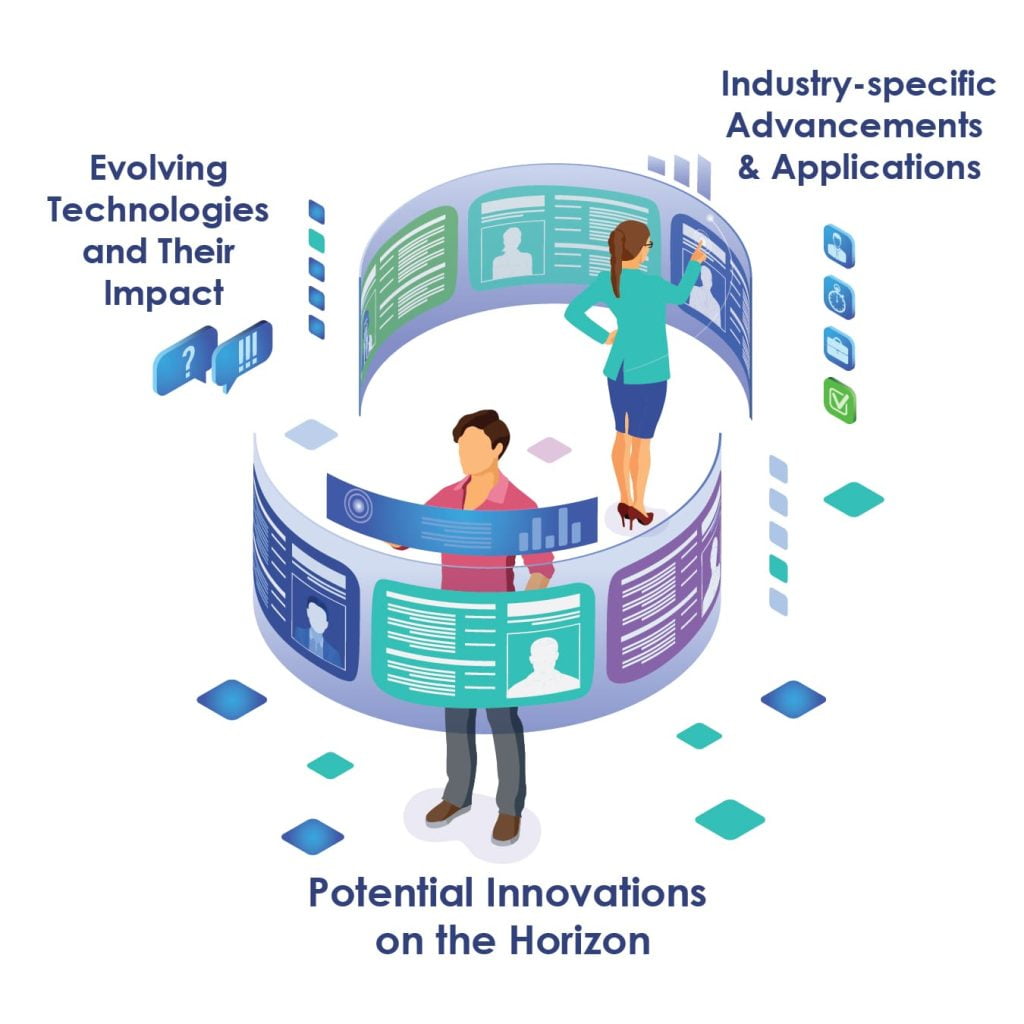
Evolving Technologies and Their Impact
The integration of ERP and IoT is poised to witness the impact of evolving technologies. Advancements in artificial intelligence (AI), machine learning, and edge computing will play a crucial role in enhancing the capabilities of ERP and IoT integration. These technologies will contribute to more intelligent data processing, predictive analytics, and automation, further optimizing business operations.
Industry-specific Advancements and Applications
As ERP and IoT integration progresses, industry-specific advancements and applications will become more pronounced. Different sectors, such as manufacturing, healthcare, and logistics, will witness tailored solutions that leverage the combined power of ERP and IoT to address unique challenges. This industry-specific customization will lead to more efficient and specialized applications in diverse business domains.
Potential Innovations on the Horizon
The future holds the promise of groundbreaking innovations resulting from ERP and IoT integration. Emerging technologies like blockchain may be integrated to enhance data security and transparency in supply chain management. Additionally, the integration of ERP and IoT with augmented reality (AR) or virtual reality (VR) could redefine user interfaces and improve user experiences, particularly in areas like maintenance and training.
Conclusion
The integration of ERP with IoT stands at the forefront of revolutionizing business operations, ushering in a new era of efficiency, intelligence, and adaptability. The dynamic synergy between these technologies not only enhances real-time data insights, automation, and decision-making processes but also opens doors to future possibilities through evolving technologies and industry-specific advancements.
As we witness the transformative impact of ERP and IoT integration, businesses are empowered to streamline operations, optimize resource utilization, and fortify their competitive edge in the rapidly evolving landscape. While challenges such as security concerns and implementation complexities persist, the potential benefits far outweigh the obstacles.
Embracing this revolutionary approach to business operations is not just a trend but a strategic imperative for organizations aiming to thrive in the interconnected future. The journey toward ERP and IoT integration is marked by continuous innovation and holds the key to unlocking unprecedented opportunities for businesses across diverse industries.
Enhance your business’s performance with our comprehensive digital marketing services, unlocking potential growth and boosting your sales effortlessly.
All images belong to their respective owners. Please email [email protected] if removal is required.

